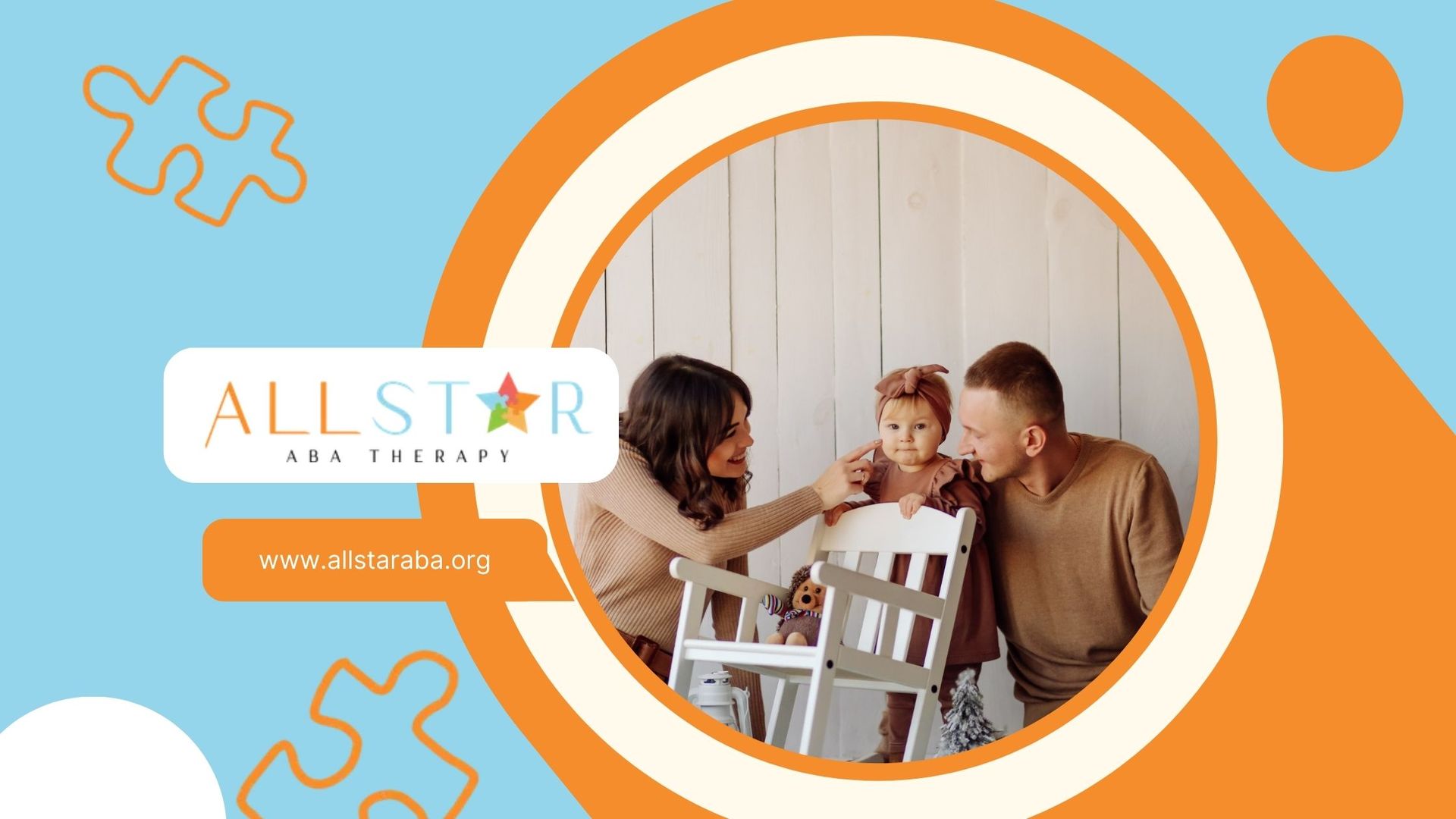New Paragraph
How Does Having a Child with Autism Affect the Family?
Navigating the complex world of autism spectrum disorder (ASD) affects the whole family. From the time of the diagnosis to the ongoing path of understanding and support, every family member feels the effects in their own way. This article will look into how having a child's autism diagnosis impacts families, specifically in terms of family life. We will discuss the emotional, social, financial, and educational sides of this issue.
Understanding Autism and Its Impact on Families
Raising a child changes your life. It is full of joyful moments, challenges, and big changes. If a child is diagnosed with an autism spectrum disorder, things become even more complex. Families need to adapt and learn together.
It’s essential to know that the autism spectrum is very wide. Each child has a unique experience. What works for one family might not work for another. It is important to understand and support each other in the family.
Defining Autism Spectrum Disorder (ASD)
Autism Spectrum Disorder (ASD) is a complex brain condition that affects social interaction, communication, and repeated behaviors. People with ASD may also have difficulty adjusting to changes in their routines and may react strongly to sensory input. It's important to know that autism comes in different levels, from mild to severe, and can greatly affect the entire family.
The diagnosis of autistic spectrum disorder, a type of developmental disorder, can change family dynamics, relationships, and quality of life. To manage ASD, it is vital to provide social support, healthcare access, and therapies like occupational and behavioral treatments. By understanding and meeting the unique needs of individuals with autistic spectrum disorder, families can handle these challenges better.
Common Misconceptions About Autism
Despite more people knowing about autism, many misunderstandings continue. These can cause stigma and not enough social support for families. One big myth is that autism is the same for everyone, which leads to wrong ideas about those on the spectrum.
Another common false belief is that autism comes from poor parenting or not having enough social interaction. This can make parents feel guilty and ashamed. It can also make it hard for them to ask for help and understanding.
We need to change these harmful ideas and show more empathy for individuals with autism and their families. Talking openly, sharing the right information, and supporting neurodiversity can help us build a kinder and more inclusive community.
How Does Having a Child with Autism Affect the Family Emotionally?
Getting an autism diagnosis for a child can bring up many emotions for families. Parents often feel a mix of relief and worry. They might be happy to finally understand their child's differences but unsure about what lies ahead.
It’s normal to feel sad, anxious, or guilty, especially when thinking about life after high school for a child with autism. Parents may miss the idea of a "normal" path they had imagined for their child.
Families need to recognize these feelings and the potential impact on their emotional well-being, especially in the general population. They should talk openly and seek help from professionals. This can support them as they adjust to the autism diagnosis and what it means for their family.
The Initial Diagnosis: Coping with a Range of Emotions
The journey often starts with a mix of relief and worry. When parents get the diagnosis of autism, it feels good to finally know what their child is facing. But this also comes with the tough task of dealing with many unknowns.
Many parents go through emotional stress as they adjust to the diagnosis and what it means for their child's future. This uncertainty can cause psychological distress. It can also affect family dynamics and personal well-being.
Getting support from therapists, support groups, or caring friends and family can help. This support offers a safe space for parents of children with autism. It allows them to share their feelings and learn important ways to cope.
Long-Term Emotional Support for Family Members
The journey of raising a child with autism can affect the mental health of family members. Parents may feel chronic stress, anxiety, or even depression while trying to meet their child's needs.
Autism can also change family dynamics. When parents focus on the child's needs, other children may feel neglected. It is important to have a balanced family where everyone feels loved and understood.
Building a strong social support system is key. Connecting with other families going through similar experiences can provide a sense of community. Getting help from therapists or counselors who know about autism can give families useful coping strategies and improve their overall well-being.
Navigating Daily Life with a Child with Autism
Living with a child who has autism means you may need to change daily routines to meet their special needs and sensitivities. Simple activities, like going grocery shopping or joining social events, can be tougher. This often needs careful planning and awareness.
It's important to create personal strategies that focus on the child's strengths and help with their specific worries. This will help make things feel more normal and reduce the chances of meltdowns.
Communication Challenges and Strategies
Communication can be really hard for children with autism. It can affect how they express themselves and how they interact with others. Some kids may have trouble speaking, understanding body language, or keeping eye contact.
Repetitive behaviors, like hand-flapping or repeating phrases, often happen too. These can make social situations tricky. Parents and caregivers need to know that these behaviors help the child. They often help with self-regulation or meet sensory needs.
Here are some strategies for better communication:
- Visual aids:
Using picture cards, social stories, and visual schedules can help kids understand what to expect in their day.
- Sensory toys:
Giving kids sensory toys can help them manage their sensory needs and feel less anxious.
- Patience and understanding: Give the child time to think and respond. Don’t rush them or interrupt them when they try to communicate.
Establishing Routines and Consistency
Predictability and structure are important for giving autistic children a sense of stability. Having clear daily routines and following them can help lower anxiety and reduce behavioral problems.
Set times for meals, sleep, play, and other activities to create a schedule for the day. This helps the child know what to expect next. Visual schedules, with pictures or symbols, can also help children understand and feel less uncertain.
It is crucial to keep routines and expectations the same in different places, like home and school. This consistency helps promote a sense of security and improves the quality of life for the child.
Financial Considerations and Planning
The financial impact of raising a child with autism is something families must face. The money spent on therapy, special education, doctor visits, and tools to help can put a lot of stress on family budgets.
It is important to plan early and look for resources that can help with these costs. Getting advice from financial experts who understand the needs of families with autistic children can offer useful guidance and support.
Understanding the Costs Associated with Autism Care
The financial impact of autism care is a significant consideration for families. Costs can include a wide range of services and necessities, often leading to difficult decisions about prioritizing expenses and seeking financial assistance.
From specialized therapies and medical consultations to educational resources and potential home modifications, the expenses accumulate quickly. Healthcare coverage varies greatly, and navigating insurance policies to maximize benefits can be a daunting task.
Here's a simplified breakdown of potential autism care costs:
| Expense Category | Examples | Potential Cost (annual) |
|---|---|---|
| Therapy | Speech therapy, occupational therapy, ABA therapy | $5,000 - $20,000+ |
| Education | Specialized schools, tutors, learning materials | $10,000 - $50,000+ |
| Medical | Doctor visits, medication, diagnostic testing | $1,000 - $10,000+ |
| Other | Respite care, adaptive equipment, support groups | Varies significantly |
Resources and Support for Financial Planning
Fortunately, there are resources to help families deal with the costs of autism care. Government programs like Medicaid waivers or Supplemental Security Income (SSI) can give financial aid to those who qualify.
Many non-profit organizations provide grants, scholarships, or financial help for families affected by autism. It can be very helpful to talk with a financial advisor who knows about special needs planning. They can assist families in making smart choices about managing costs, accessing benefits, and planning for the future.
Respite care services are also available. These services give families a short break from caregiving while making sure the child is safe and well cared for.
Social Implications for Families
The social lives of families can change a lot after an autism diagnosis. Parents might choose to stay away from social events because they worry about how their children will behave or what others might think.
It is not easy to balance helping their child and keeping their friendships. It’s really important to talk openly with friends and family about autism and how it affects the family. This can help create understanding and support.
Maintaining Relationships and Social Connections
Maintaining strong family relationships is very important, but it can be hard with the demands of autism. Parents may feel stress in their marriages or partnerships. This could be due to different views on caregiving, money worries, or just being tired from daily challenges.
Extended family members may find it tough to understand autism and how they can best help the family. It is important to have open and honest talks about the ups and downs of raising an autistic child.
Getting family members to learn about autism can help. They can go to therapy sessions together or join social activities that include the autistic child. These actions can help build stronger bonds and understanding within the family.
Dealing with Public Misunderstandings and Stigma
Public misunderstandings and stigma about autism still exist, which can create more problems for families. When a child has a meltdown or behaves unusually in public, it can lead to unwanted attention, rude looks, or even hurtful comments.
Families should know they don’t have to explain their child's diagnosis or behavior to strangers. It can help to prepare short responses or use visual aids like cards that explain autism when needed.
Promoting autism awareness, correcting false ideas when you see them, and finding help from local autism groups can give families the strength to feel more comfortable in public spaces.
Educational and Therapeutic Interventions
Early help is very important for kids with autism. It means working with a team of experts. They offer different types of therapies like speech therapy, occupational therapy, and applied behavior analysis (ABA). Each of these therapies is designed to meet the specific needs of the child.
Working through the school system is also important. You need to ask for the right educational plans and work together with teachers. Being part of inclusive classrooms and having specialized support services can greatly help a child's learning and social growth.
Navigating School Systems and Educational Plans
Parents of children with autism often become advocates. They work closely with teachers to create special learning plans called IEPs. These plans match their child’s unique way of learning and support their individual goals.
Dealing with school systems can feel difficult. Parents need to know their rights and ask for the right support. They must make sure their child has everything needed to succeed.
Good communication with teachers, therapists, and school officials is very important. It helps keep track of progress, solve problems, and change the education plan when necessary.
The Role of Therapies in Supporting the Child and Family
Therapies like speech therapy, occupational therapy, and ABA therapy are very important for helping children with autism grow and feel good. These therapies help with communication issues, sensory processing problems, social skills, and behavior concerns.
Parent training is a key part of therapy. It gives parents the tools they need to help their child improve at home and use these skills in different situations.
Being consistent with attending therapy, taking part in parent training, and having good communication with therapists are all key to getting the most from these therapies. This helps create a supportive environment for the child's growth.
Conclusion
In conclusion, taking care of a child with autism can be special but also brings unique challenges. These challenges can affect the entire family in many ways, including emotionally, socially, and financially. It is very important to offer long-term emotional support. Families should also set up routines, look for financial help, and find the right educational and therapy options. Understanding and acceptance from friends and the community are key to fighting misunderstandings and stigma.
By creating a supportive environment and using available resources, families can help their autistic child grow and do well. They can also take care of their own needs. Remember, getting help from professionals and finding support groups can greatly improve the experience of raising an autistic child.
All Star ABA is dedicated to supporting families of children with autism. Our comprehensive ABA therapy services address the unique needs of each child, empowering them to reach their full potential. With a focus on early intervention and evidence-based practices, we create a supportive environment for both children and families. Contact All Star ABA today to learn more about our best ABA therapy services in Maryland and how we can help your family thrive.
Frequently Asked Questions
What are the first steps after receiving an autism diagnosis for my child?
When you get an autism diagnosis, reach out to a healthcare professional who focuses on autism. Work together to create a care plan just for you. Don't forget to find emotional support from your family, therapists, or support groups. Start looking into local resources and early intervention programs to help you.
How can families cope with the emotional stress of raising a child with autism?
To handle emotional stress, focus on talking openly with your family. Also, take time for self-care activities. Find help from therapists who know about autism. It's good to connect with other families for support. Always remember that taking care of your mental health is important for a good quality of life.
What financial assistance is available for families with autistic children?
Families can look into government help programs such as Medicaid waivers. They can check out non-profit groups that provide financial support for autism care costs. It is also good to talk with financial advisors who focus on special needs planning. Additionally, families should explore healthcare coverage options for possible benefits.
How can parents ensure the inclusion of their autistic child in social settings?
- To help with inclusion, make social stories and visual schedules for the child.
- Pick sensory-friendly places when you can.
- Stand up for your child's needs.
- Teach other family members or friends how to interact in a supportive way.
What are effective communication strategies for children with autism?
Effective strategies vary based on where a child is on the autism spectrum. These may include using visual aids like picture cards or social stories. Sign language can help, too. It is important to be patient and give the child time to process information. If the child has trouble speaking, using other ways to communicate can be helpful.
Need Support?
We're Here to Help!
Our experienced team is ready to assist you. Reach out today to discuss how we can support your child's development and well-being.
Get started with expert ABA therapy today.
Related posts

All Star ABA ©2024

All Star ABA delivers the gold standard of care, Applied Behavioral Analysis (ABA) therapy, for individuals diagnosed with ASD, from infancy to age 21.
Quick Links







